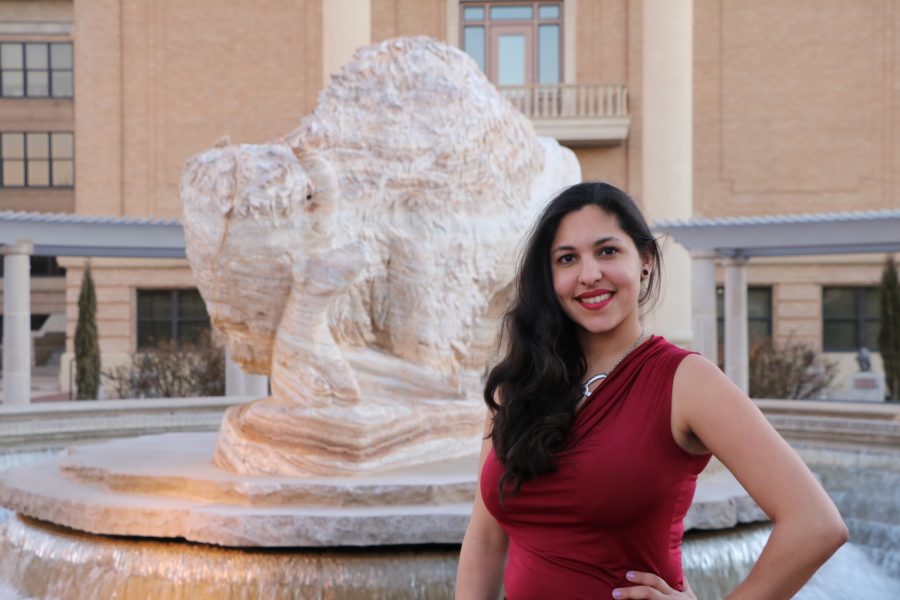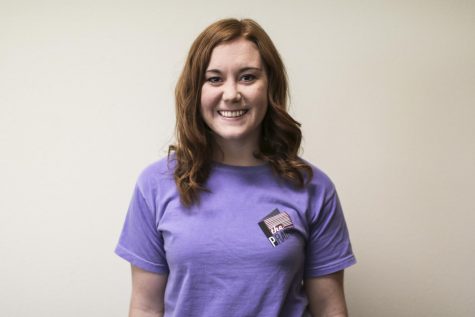Student Body Vice Presidential Candidate: Lindsey O’Neal
March 4, 2017
The West Texas A&M University student body elections will take place on March 7 and 8. In order to give the campus community a better look at the candidates, The Prairie will be feature those candidates running for student body president and vice president. First up, is student body candidate for vice president, Lindsey O’Neal.
The Prairie: Why have you decided to run for student body vice president?
Lindsey O’Neal: I have been in student government since I was a freshman…I know the ins and outs of student government, and I really feel that I know enough about how it works and what they need to improve it and make it better, so I feel like I’m the person to do that.
How did you become interested in student government?
As a political science major, literally the second I heard about [the Student Government Association], I was like, “That’s perfect!” Government and parliamentary procedure and just having a voice on campus and helping things improve and grow and stuff like that really interests me.
If elected, what do you hope to accomplish?
I think that the biggest thing that we really need to look at is I think a lot of student organizations on campus have forgotten how to become a family, so I really want to strengthen relationships within student government so that we can strengthen relationships outside of student government. If we don’t really have a strong foundation within it, then we’re not going to be able to connect to other organizations and really talk to people and become more passionate about it, so really just starting from foundation and moving up is really the building block, but other than that, just getting students to know about us, [public relations], growth, asking questions, and being there is really important.
What issues do you feel are important to the student body?
Diversity. I think after the election, a lot of students on campus felt that they weren’t acknowledged and their needs weren’t addressed. We have deans’ meetings for student government, and so Dean [Eddie] Henderson of the College of [Education and Social Sciences] said that student government is the organization to be there for students, and we weren’t. I really want to create a relationship, create a way that we can better have those voices heard and appreciated and actually do something about it. So really getting to know our students.
How do you hope to address those issues?
I think the [public relations] committee is going to become much more important, and it’s going to become more important to strengthen relationships with other organizations because other organizations have a good idea of these different sects of groups on campus that we can really get insight to. Student affairs committee is going to really grow that relationship with other orgs, PR is going to hit up social media and work with The Prairie, the Eternal Flame, the radio station, really all of you guys. We really have to spread out and diverge and network, so that’s going to become more important, and that’s going to become more skills that we’re going to learn.
If given the chance, what would you change about campus policies if you could?
[The Residence Hall Association] actually just did a survey, a vote for changing visitation hours within on-campus living, and I spoke to some of the students on campus, and they’re all about surveys because it’s really easy, it’s quick, it’s convenient. I think that surveys are really going to show how much interest there is. We have course evals and things like that; it could be just as easy to do, “What kind of student affairs changes do you want to make?” Not only working at
the administration but really strengthening the relationship with the administration because if we’re not going to visit with them, talk with them, and if we’re only talking with them when we need something from them, that’s not going to work. We have to befriend them; we have to understand what their needs are and what their capabilities are for us actually to make any changes.
Given your personal experience, what issues on campus are important to you that some students may not be aware of?
I think that, for me, I work at the library, and I think that if we grow some on-campus jobs that we can really have a better idea of what the students’ financial needs are because I think there’s a lot of students that are working two jobs, that are working full-time schedules with classes. I have a friend of mine who works from eight p.m. until two in the morning, and he has to go back to an eight a.m. class and a nine a.m. class, and that’s not student-friendly, and that’s not how you create retention at WT. If we promote that there can be better jobs on campus and also create more jobs in Canyon that students would be more attracted to, then, we can not only promote more money for students to be able to have better jobs, but we can also grow Canyon and be more college-friendly. So really just college to community and creating that opportunity for students so they don’t have to go all the way to Amarillo and come back—it’s impossible to do that with a full-time class schedule.
What’s your favorite thing about WT?
I’m from Florida, so I really chose WT with deep intentions. I like small community; I like just being able to walk down the hallways and know everybody because I feel like you guys are my
family. Even though I don’t know you, it’s small enough to be like, “Hey, I know somebody who knows you,” so you become my family. That’s deep from the bottom of my heart – I love WT. I feel like I’m safe here, I’m loved here, I feel like the administration is really trying to help me, and even though there’s some things they can’t do, that we can work together.
How do you hope to make a difference once you graduate?
Once I graduate, I am interested in becoming a diplomat and helping American security and protecting American interests abroad. As an alum of WT, I really want to improve first within state government. For example, we’re going to Conference of Student Government Associations this weekend, and there’s a student-led organization that works with Austin, works with the capitol in trying to get student bodies interactive with Texas legislation. If we create a society, a culture within this next generation that can be more involved in politics, that’s really what I’m hoping for. As somebody who’s graduating in political science, I want students and young people to know that their voices are really important. If I can come back as an alum and promote student government to be more involved in politics, then not only can they be influential in their school or in their community, but they can be influential in their state and in their nation and in their world. So really, just open people’s minds to what their abilities are.




